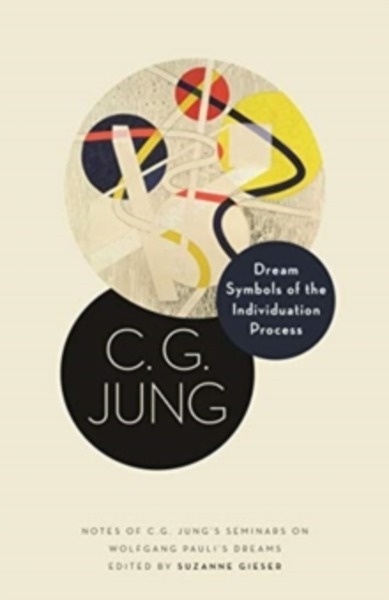Dream Symbols of the Individuation Process
Notes of C. G. Jung's Seminars on Wolfgang Pauli's Dreams

Editorial Princeton
Fecha de edición noviembre 2019 · Edición nº 1
Idioma inglés
EAN 9780691183619
360 páginas
Libro
encuadernado en tapa dura
Resumen del libro
Jung's legendary American lectures on dream interpretationIn 1936 and 1937, C. G. Jung delivered two legendary seminars on dream interpretation, the first on Bailey Island, Maine, the second in New York City.
Dream Symbols of the Individuation Process makes these lectures widely available for the first time, offering a compelling look at Jung as he presents his ideas candidly and in English before a rapt American audience. The dreams presented here are those of Nobel Prize-winning physicist Wolfgang Pauli, who turned to Jung for therapeutic help because of troubling personal events, emotional turmoil, and depression. Linking Pauli's dreams to the healing wisdom found in many ages and cultures, Jung shows how the mandala-a universal archetype of wholeness-spontaneously emerges in the psyche of a modern man, and how this imagery reflects the healing process.
He touches on a broad range of themes, including psychological types, mental illness, the individuation process, the principles of psychotherapeutic treatment, and the importance of the anima, shadow, and persona in masculine psychology. He also reflects on modern physics, the nature of reality, and the political currents of his time. Jung draws on examples from the Mithraic mysteries, Buddhism, Hinduism, Chinese philosophy, Kundalini yoga, and ancient Egyptian concepts of body and soul.
He also discusses the symbolism of the Catholic Mass, the Trinity, and Gnostic ideas in the noncanonical Gospels. With an incisive introduction and annotations, Dream Symbols of the Individuation Process provides a rare window into Jung's interpretation of dreams and the development of his psychology of religion.
Biografía del autor
(1875-1961). Psiquiatra y psicólogo suizo, fue el fundador de la escuela de Psicología Analítica. Después de sus estudios de medicina en Basilea, se dedicó a la práctica de la psiquiatría e introdujo en ella, junto con Eugen Bleuler, el psicoanálisis freudiano. Tras su ruptura con Freud a finales de 1912 comienza la elaboración de su propia orientación analítica, conocida también como x{0026}lt;i psicología de los complejosx{0026}lt;/i . Una peculiaridad de los trabajos de Jung es que se refieren desde muy temprano a cuestiones de la concepción general del mundo y se hacen cargo de la confrontación de la psicología con la religión. Así ponen de manifiesto que las representaciones originarias que subyacen y son comunes a las diversas religiones constituyen contenidos arquetípicos del alma humana. Además, durante los últimos treinta años de su vida, el estudio de la alquimia le proporcionará a Jung una orientación hermenéutica fundamental. Catedrático de Psicología médica en la Universidad de Basilea a partir de 1944, ejerció su práctica clínica en Küsnacht, junto al lago de Zúrich, hasta su muerte. <br> De C. G. Jung Trotta ha concluido la edición de su x{0026}lt;i Obra completax{0026}lt;/i y publica sus Seminarios, serie en la que han aparecido x{0026}lt;i Análisis de sueñosx{0026}lt;/i (2024), x{0026}lt;i La psicología del yoga Kundalinix{0026}lt;/i (4.ª ed., 2022), x{0026}lt;i Sueños y transformacionesx{0026}lt;/i (2022), x{0026}lt;i Elx{0026}lt;/i x{0026}lt;i Zaratustra de Nietzschex{0026}lt;/i (vol. 1, 2019; vol. 2, 2021) e x{0026}lt;i Introducción a la psicología analíticax{0026}lt;/i (2017). En esta misma Editorial se han publicado también x{0026}lt;i Escritos sobre astrologíax{0026}lt;/i (2025), x{0026}lt;i Respuesta a Jobx{0026}lt;/i (2.ª ed., 2023), x{0026}lt;i Psicología de la religión orientalx{0026}lt;/i (2.ª ed., 2023), x{0026}lt;i Escritos sobre espiritualidad y transcendenciax{0026}lt;/i (2.ª ed., 2018), x{0026}lt;i Sobre el amorx{0026}lt;/i (6.ª ed., 2018), la x{0026}lt;i Correspondenciax{0026}lt;/i con Sigmund Freud (2012) y el volumen x{0026}lt;i Encuentros con Jungx{0026}lt;/i (2000).








